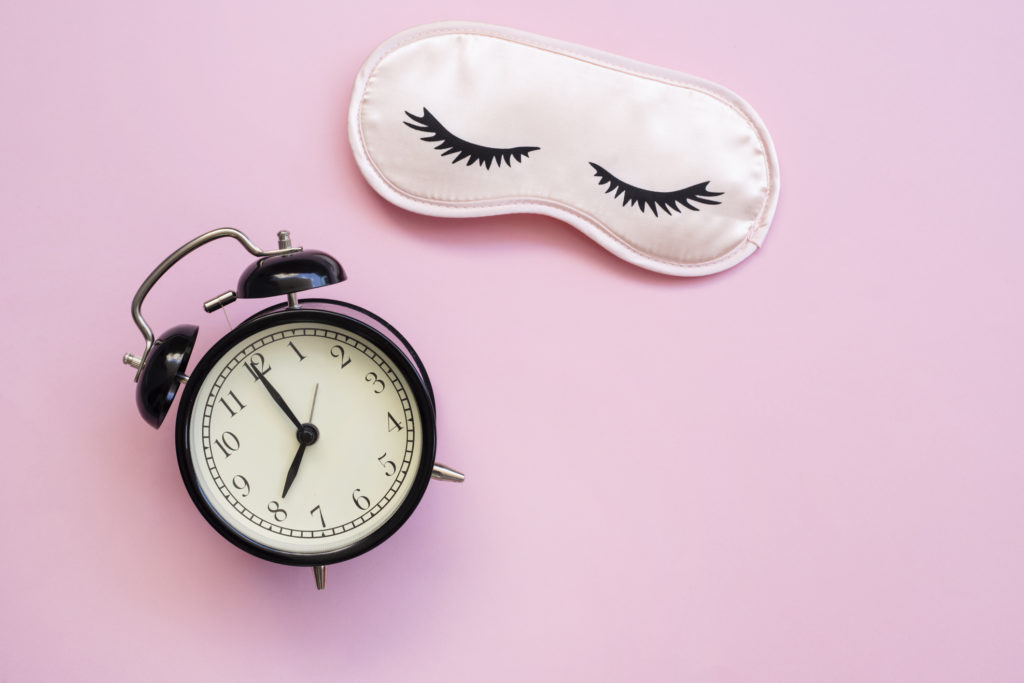Do you wake up feeling rested every morning, or are you constantly fighting fatigue? Research shows that more than 50% of adults get less sleep than they need.1https://atlasbiomed.com/blog/biohacking-sleep-and-biohacking-insomnia-with-lifestyle-and-diet/
The question is, are you stressed because you’re tired, or are you tired because you’re stressed? The answer might be both!
A typical, healthy adult needs on average, 8 hours of quality sleep each night. Some research suggests that less than 6 hours sleep a day has negative health implications.
Of course, missing the odd hour here and there is not a major health challenge. The real issues arises from chronic lack of sleep – which can lead to obesity, Alzheimer’s, type 2 diabetes, cardiovascular disease, poor emotional regulation, mental health issues, reduced concentration, and arterial hypertension.2https://atlasbiomed.com/blog/biohacking-sleep-and-biohacking-insomnia-with-lifestyle-and-diet/3https://mentalhealth-uk.org/help-and-information/sleep/ Ongoing sleep deficit may also cause additional cravings and lead to poorer food choices, and thereby lead to weight gain.
How does stress impact your sleep?
Chronic stress “dysregulates” the sleep-wake cycle.4https://thesleepdoctor.com/mental-health/stress-and-sleep/ You might notice when you’re stressed, you take longer to fall asleep and wake up more frequently. This happens because your body’s alert state is triggered by emotional distress, leading to the production of hormones. These hormones stimulate the brain cortex and cause activities in the brain centres to be suppressed.5https://atlasbiomed.com/blog/biohacking-sleep-and-biohacking-insomnia-with-lifestyle-and-diet/ Broken sleep or long-term sleep deprivation can increase cortisol levels (the stress hormone).6https://thesleepdoctor.com/mental-health/stress-and-sleep/
Stress and sleep have what is called a “reciprocal” cycle. This means that stress can cause poor sleep, and similarly a lack of sleep can cause changes to the stress response.7https://thesleepdoctor.com/mental-health/stress-and-sleep/ It’s a frustrating loop in which to be trapped!
What can help?
Reducing stress can improve sleep quality, just as better sleep may help reduce stress. Identifying ways to manage stress may reduce the negative effects on sleep. Research shows that individuals who have slept better can recover quicker from a stressful event.8https://thesleepdoctor.com/mental-health/stress-and-sleep/ Treating sleep problems can also help reduce depression symptoms and anxiety disorders.9https://mentalhealth-uk.org/help-and-information/sleep/
The good news is, as with most areas of health, improving your gut health is a great place to start. Having a more diverse microbiome has been linked with better sleep.10https://www.ncbi.nlm.nih.gov/pmc/articles/PMC6779243 To boost and feed your beneficial gut bugs, add a daily gut-brain health smoothie into your routine. Read more here: https://staging.chucklinggoat.co.uk/gut-health-smoothie/
Try to diversify your gut by including colourful, fibre-rich options, as well as the fermented foods your gut bugs love! Some foods that help promote sleep include bananas, almonds, wholegrain cereals, spinach, fish, chickpeas, oatcakes, milk, and yeast extract. Furthermore, individuals who consume more vitamin C have been shown to sleep longer. Melatonin-rich nuts and fruits may also improve your sleep quality.
Different techniques work for different people, so finding what works best for you may take some trial and error. Try implementing some of the approaches below to get better sleep and in turn reduced stress levels.
11 Tips to Improve Sleep Quality
- Stick to a regular sleeping pattern: Go to bed, and wake at the same time each day – even on weekends!
- Harness the natural relaxing power of lavender – create a bedtime ritual using Calm Down Kefir Lotion, Calm Down Goatsmilk Soap and Sing Me to Sleep tea.
- Keep your bed for sleep: avoid eating, watching television, or working while in the bedroom.
- Put away the phone, laptop, and any other gadgets at least 1-2 hours before sleep. You can increase your deep sleep by avoiding blue light from screens.
- Practice meditation and mindfulness. These breathing practices can help clear your mind, reduce your heart rate, and oxygenate your body.
- Keep your bedroom temperature between 18-24oC.
- Avoid alcohol and nicotine, especially before bed. Whilst it’s best to avoid these things altogether, if you are consuming tobacco or alcohol, cut-off your intake at least 4 hours before bedtime to avoid negatively effecting sleep quality.
- Keep caffeine for the mornings! Avoid caffeine for the 6 hours before sleep.
- Regular exercise will improve mood, help reduce stress, and improve sleep duration and quality. Spend at least 30 minutes outdoors and being physically active to reap the most benefits for sleep.
- Eat your dinner early in the evening and choose a light meal. Avoid eating in the 2-hour window before sleep.
- If there are noises or light outside your bedroom, use earplugs and a sleeping mask. Invest in blackout curtains and open them as soon as you wake. Regular exposure to sunlight during the day has positive impacts on the sleep-wake cycle. Also avoid bright artificial lights close to bedtime.
References
- 1
- 2
- 3
- 4
- 5
- 6
- 7
- 8
- 9
- 10















